National coach Matthew Mott describes it as a “game changer”. Cricket Australia’s parental leave policy has helped generate discussion about motherhood among the country’s top female cricketers, including Megan Schutt. The star swing bowler shares her and wife Jess’ journey with Liz Walsh, opening up on the long IVF process and finding the right time to put her sporting career on hold.
Megan Schutt was feeling “foggy as hell” as she lay in the recovery ward of an Adelaide hospital, slowly waking from the general anaesthetic.
One of the world’s best fast bowlers and spearhead for the all-conquering Australian women’s cricket team, Schutt was no stranger to seeing the inside of a doctor’s clinic.
But this time it was different.
She had just undergone a procedure to have her eggs removed and thereby start the journey to motherhood for her and wife Jess.
Schutt, 28, had spent two weeks in the lead up to January’s procedure injecting herself with fertility drugs to stimulate egg production and prior to surgery, the doctor told her that the number of eggs collected during the operation would be written on her hand when she woke up.
So, as she roused herself into consciousness she remembered those words and looked down at her right hand.
There was nothing written there.
“I just thought: ‘Oh s**t we got nothing’, but then I checked my left and I saw the number 28 and I was like: ‘Oh wow!’,” she says.
The procedure had been a huge success.
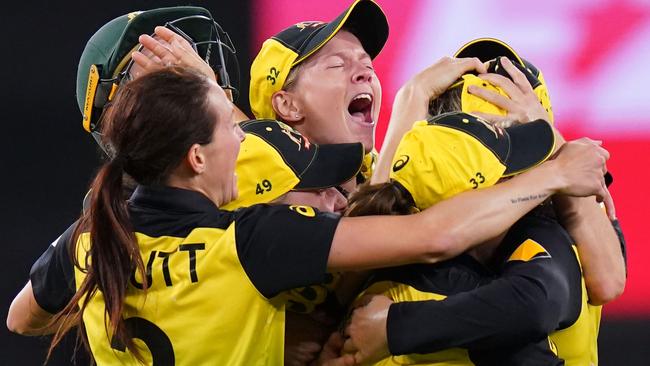
Kayo is your ticket to the best sport streaming Live & On-Demand. New to Kayo? Try 14-Days Free Now >
Megan and Jess were married in March, 2019, in an intimate ceremony in McLaren Vale. They have bought a house together in Adelaide’s west and have two much-loved pets, cat Whitney (named in honour of singer Whitney Houston) and golden retriever Eddie (named after Eddie Betts previously of Schutt’s favourite footy team, Adelaide).
The couple would now love to welcome a baby into their lives.
And to help make that dream come true, together they are embarking on a process called Reciprocal IVF, which is becoming increasingly common in female same-sex relationships, whereby Schutt’s eggs have been fertilised with donor sperm sourced from the United States’ California Cryobank, and are now frozen in storage and will eventually be implanted in Jess who will carry their first child.
PART ONE: THE SURFING WORLD CHAMP WHO WON’T BE SILENCED
PART TWO: WHY WOMEN’S SPORT HAS NEVER BEEN BETTER
PART THREE: SHARNI NORDER Q&A, MENTAL HEALTH AND SPORT
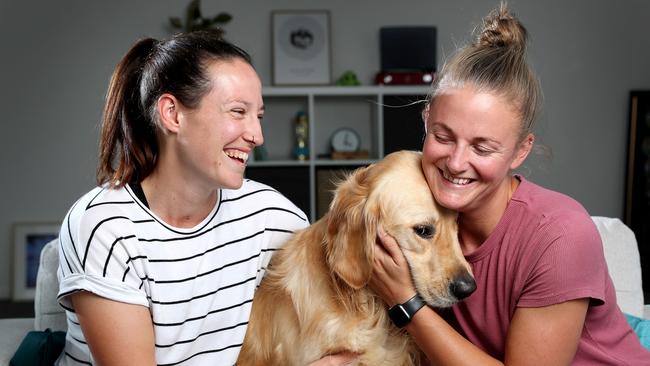
When and if the time is right down the track, Schutt will then carry Jess’s egg, fertilised with the same sperm.
“For being in a same-sex relationship it’s a long process,” Schutt, who took career-best figures of 4-18 in Australia’s spectacular T20 World Cup final win over India in front of 86,174 people at the MCG in March last year, explains.
“We started going to Repromed about 18 months ago, and went through the process of counselling so we’d be prepared for potentially judgment down the track, and then finding our donor sperm.
“There are only about 11 donors in SA, so we chose the California Cryobank in America because it opened up hundreds of donors and there was a lot of information about them, you could even hear their voice if you wanted to, which we opted not to do.
“We then went through genetic testing with our bloods to see that it matches well with the donor, and once we’d decided on the donor, we had that sent over to Australia and it was then a matter of me finding the right time to get my eggs out.”
But the demands of elite sport mean finding a good window of time is not easy.
Even the COVID-19 shutdown of sport and the cancellation of all Aussie commitments including a tour of South Africa, didn’t make it any easier because minor procedures were stopped.
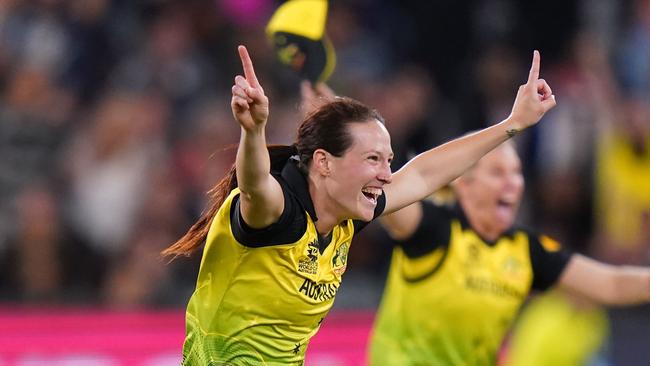
At Christmas time, the Schutts realised there would never really be a perfect time, and opted to do IVF the following month.
It meant that Schutt would miss the opening round of the Women’s National Cricket League, but she had the full blessing of both South Australian head coach, Luke Williams, and national coach, Matthew Mott (but a further COVID-19 fixture change meant she didn’t miss Round 1).
She also needed the OK from the Aussie team doctor to make sure the drugs she was required to take wouldn’t interfere in any future drug tests (which they won’t).
“I planned to be out for two to three days afterwards, when really, I was probably out for seven or eight and I couldn’t strain or lift heavy things for maybe 10 days, which changes your loads with cricket and bowling, so we’ve had to work around that, but luckily they’re all pretty flexible because this is obviously an important thing for Jess and me,” Schutt says.
Schutt is sharing her story to help normalise the discussion of fertility among women athletes; a topic long considered taboo.
“I wanted to be really open about it,” she says.
“I think it’s time we start doing that … for some reason no one really discusses it.”
The SA Scorpions captain also wants the discussion to be normalised inside her own state team, and as soon as Schutt had locked in a cycle to take the hormone treatments, she took bets with her teammates as to how many eggs would be removed.
Schutt thought she’d have about nine eggs removed.
The team’s strength and conditioning coach Anthony Gallomarino guessed 29 and won the bet.
Schutt says she’s blessed that of those eggs, the couple has nine embryos now in storage.
Fertility wasn’t something openly discussed inside the Aussie cricket team until Cricket Australia released a revolutionary parental leave policy in 2019, that means any player who falls pregnant can now transfer to a non-playing role until they give birth and be eligible for 12-months paid parental leave.
They will also be guaranteed a contract extension for the following contract year, in line with their contractual arrangements.
It also entitles players whose partner is pregnant or adopting, and who are not the primary carer, up to three weeks of paid leave, taken anytime within 12 months of the birth or adoption.
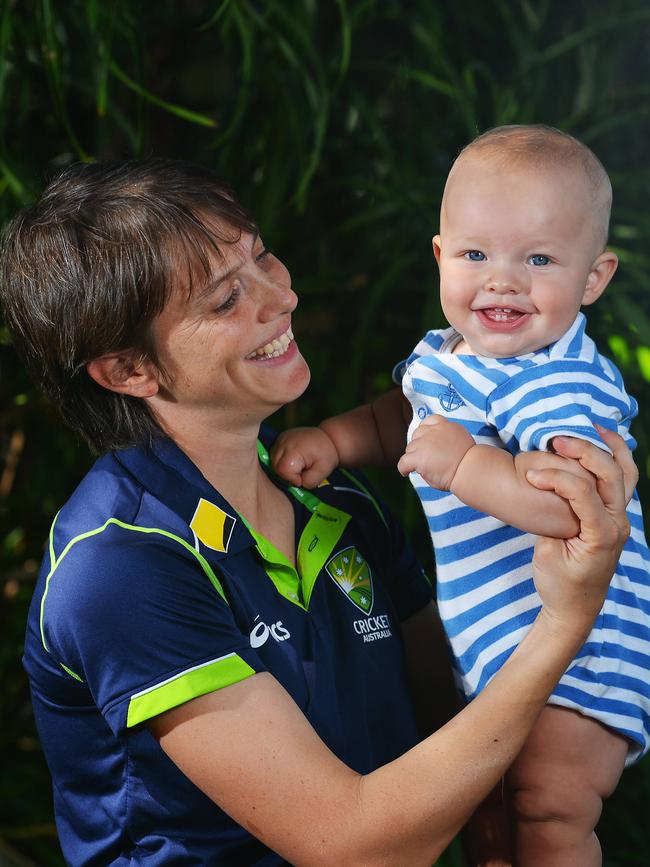
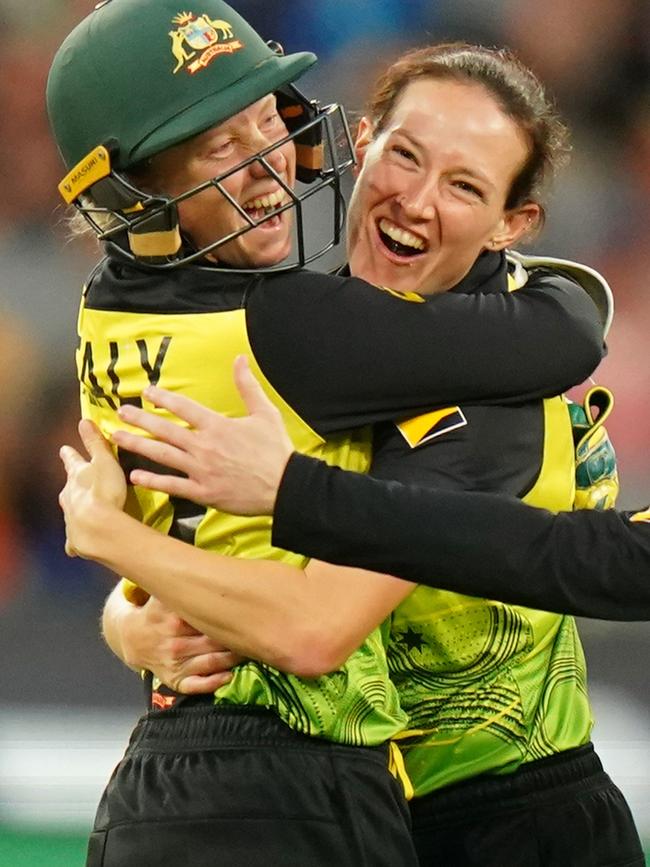
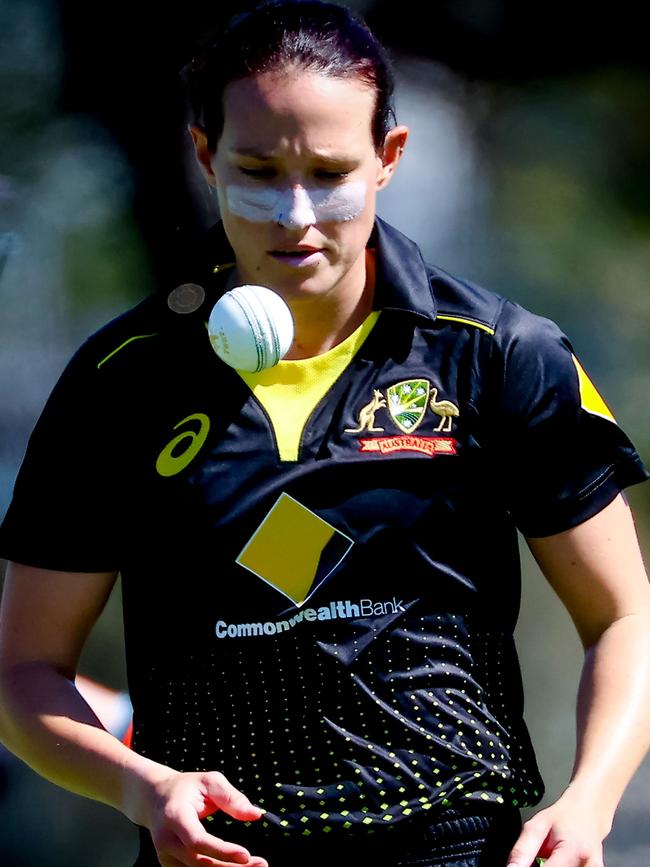
Australia coach Matthew Mott said the parental leave policy has acted as a conversation-starter in the team around the best time to have children.
“For an athlete when to have a child is a real dilemma … traditionally they’ve had to leave early to start a family, but the game changer is this parental leave policy,” he says.
“It’s a wonderful thing not just for cricket, but for women’s sport because we want our athletes to play for as long as they want to play and hopefully this removes one of the big hurdles that was a part of women’s sport in the past.”
Mott says he’s excited for his star bowler that she could soon embark on motherhood.
The journey could mean that Schutt might become the first mother in the Aussie women’s team since Sarah Elliott, who, in 2013, famously expressed breastmilk for her nine-month-old son Sam in the Wormsley changerooms after making a century against England in an Ashes Test Match.
MORE: SARAH ELLIOTT ON JUGGLING CRICKET AND FAMILY
MORE: T20 MUMS CHASE BIG BASH LEAGUE GLORY
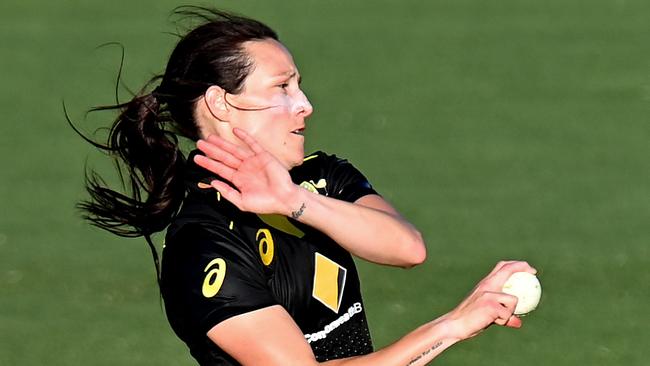
Schutt, recalls that day, then aged 20 and walking into the rooms during the tea break to congratulate her teammate on her magnificent hundred and seeing her expressing.
“I was like: ‘Whoa!’,” Schutt says. “How bloody cool that you have just finished making a century and she would have been pooped, and the first thing she does is that!”
Schutt wasn’t very clucky in those days, in fact she says she didn’t have a maternal bone in her body until she fell in love with Jess in 2015 while they were both at Brisbane’s National Cricket Centre (Schutt rehabbing an injured knee, Jess working in administration).
Now, their dream to parenthood is another step closer.
“We just feel so blessed,” Schutt says.
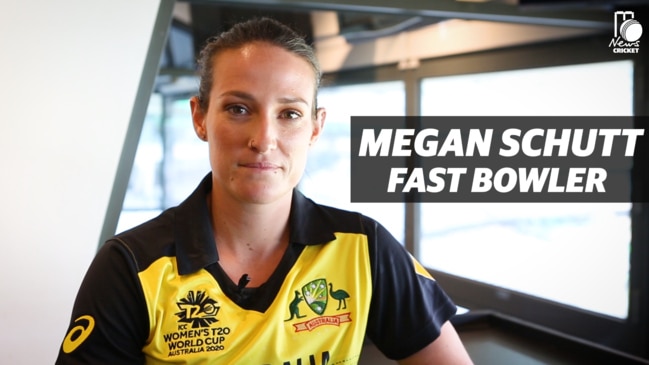
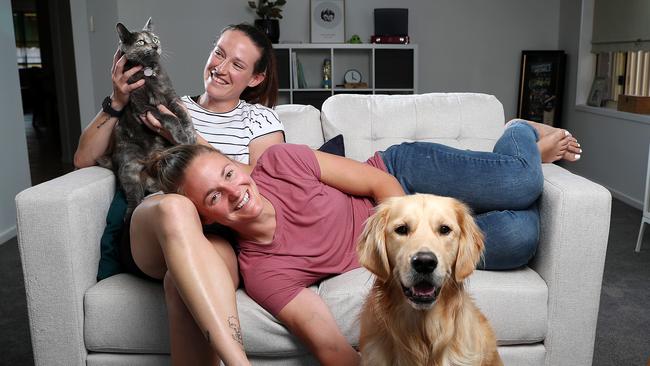
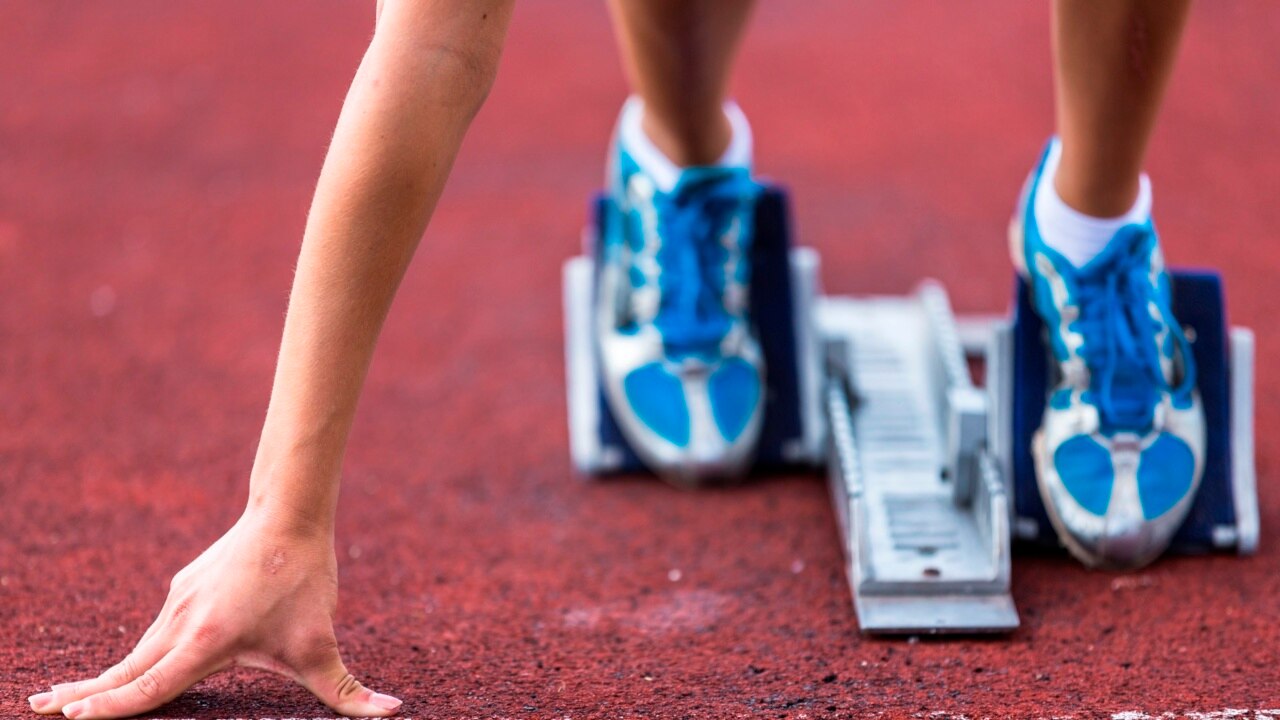
WHAT OTHER ATHLETES SAID …
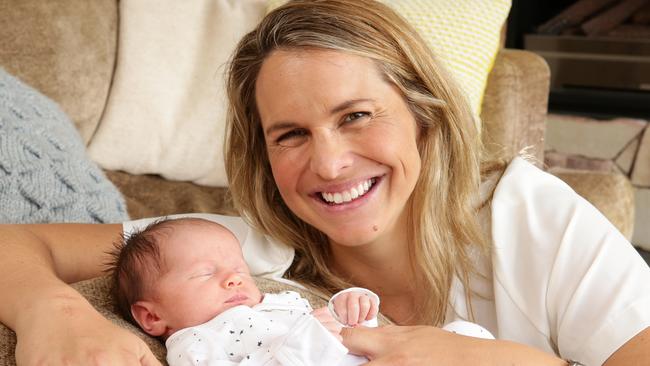
Libby Trickett (swimming)
After a heartbreaking miscarriage in 2014, four-time Olympic gold medallist Libby Trickett shared her story to spreading awareness about what has been a taboo topic.
“For one it made me realise how common it is, you think, it’s not just me, it’s not something I just did. It just unfortunately does happen sometimes,”
“Women really need a support system in place to talk about it”
Susan Pettitt and Natalie Medhurst (netball)
Last year, the former Australian Diamonds called for Netball Australia and women’s sports to better educate female athletes about fertility. Both Medhurst and Pettitt opened up about their own IVF experiences to help normalise conversation around fertility in sport.
“There’s no education piece or section that I’ve been exposed to, and I’ve been at four clubs,” Medhurst told NewsCorp in May 2020.
“When players leave the sport, that’s when they start wanting to find out about (fertility) information. But I think it needs to be fed to players as soon as they walk into the system and their whole time through it.”
Pettitt also urged female athletes to consider egg freezing.
“It wouldn’t have been hard for me to go to a doctor at 25 and get them frozen,” Pettitt said last year.
“It’s not that expensive to store them and it gives you peace of mind … I’ve told numerous current players that there’s no harm in doing that, you won’t miss a season or training sessions.”
Geva Mentor (netball)
In 2019, Collingwood captain Geva Mentor revealed plans to freeze her eggs. The English goal keeper – 34 at the time – wanted to continue playing elite netball and expand her options in terms of becoming a mother. Mentor underwent the procedure and has sparked conversation around egg freezing in female sport codes around the world.
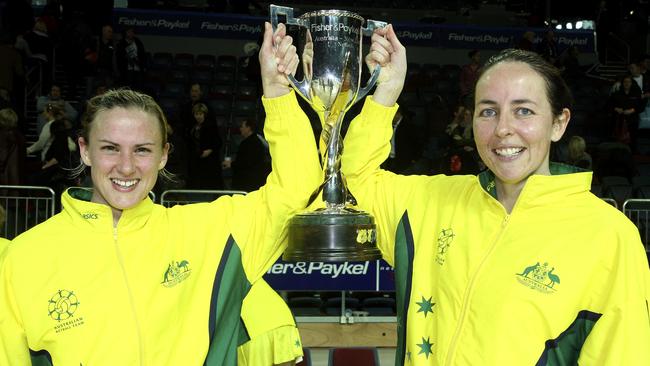
Liz Ellis (netball)
In 2019 Australian netball legend Liz Ellis published a book about her battle with infertility. After giving birth to her first child, Ellis endured countless doctors appointments, IVF treatments and three miscarriages over five years before giving birth to her second.
In the end, Ellis fell pregnant the old-fashioned way and ended up having a baby boy when she was 43.
The former Aussie skipper detailed her story to help couples navigate infertility and to spread awareness about the issue.
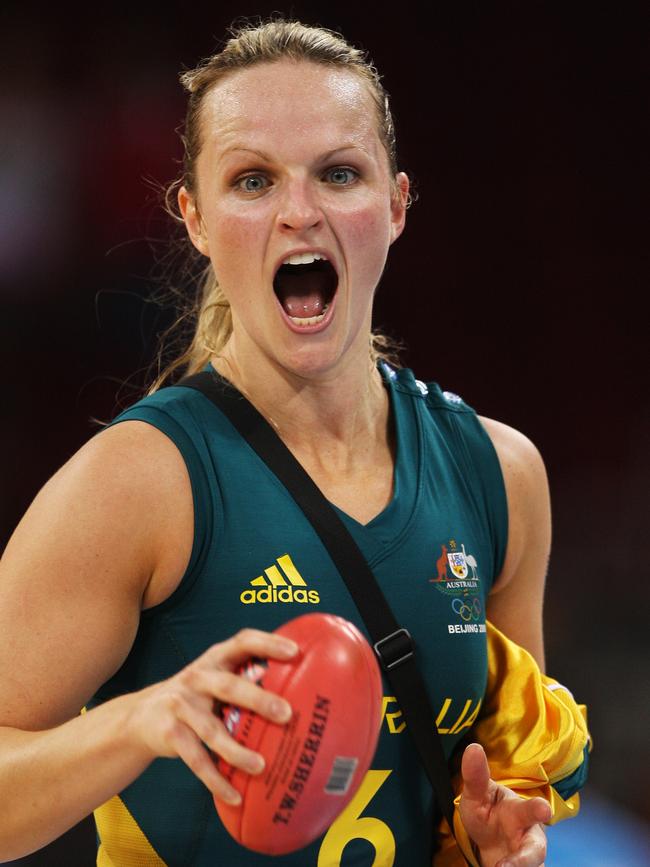
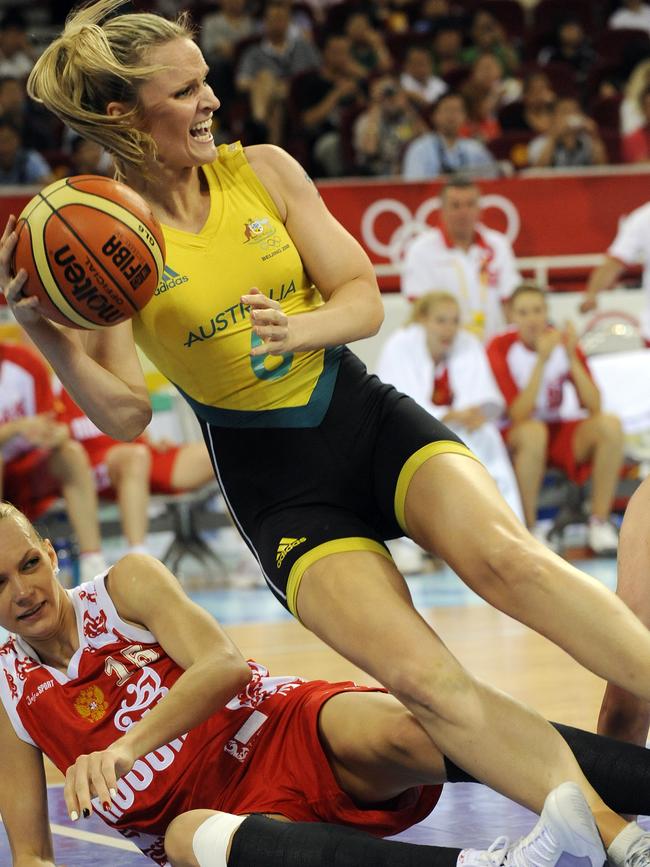
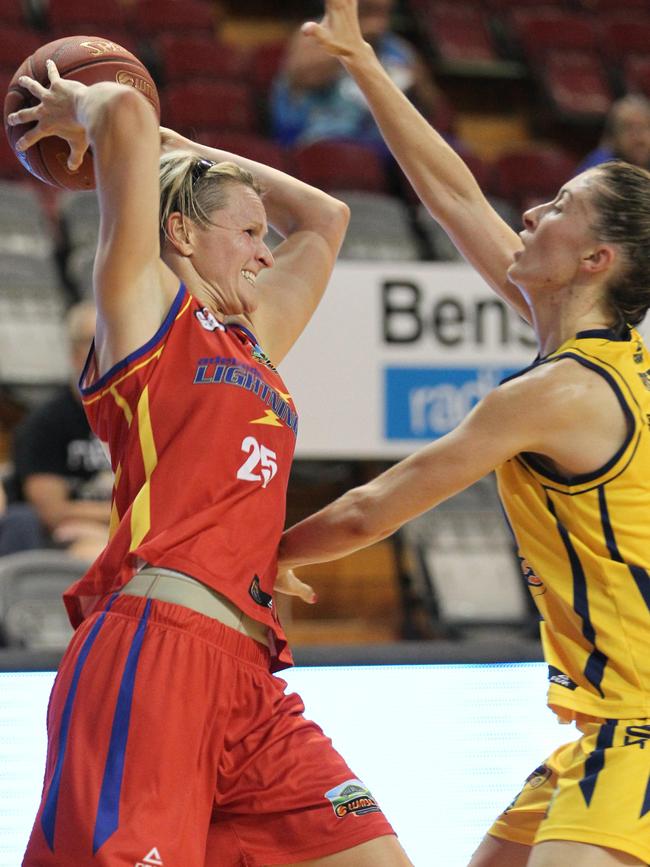
Jenni Screen (basketball)
Two-time Olympic medallist Jenni Screen opened up about her struggle with fertility three years ago, writing for The Athletes Voice in 2018. The Opals legend revealed how challenging it was to accept the lack of control she had over her body as she endured failed IVF cycles and unsuccessful transfers. Last year, Screen posted on Instagram that she and her husband decided to end their IVF journey. The 2006 FIBA World Champion’s bravery and willingness to share her experience has undoubtedly inspired athletes to have discussions around fertility.


Add your comment to this story
To join the conversation, please log in. Don't have an account? Register
Join the conversation, you are commenting as Logout
Ranked: Who should really be named SA’s top sporting hero?
We’ve named the top 100 athletes, teams and sporting icons from South Australia. But did we get it right? Rate our full list here.
Matildas loss rugby’s gain as teens help Aussies end long Sevens drought
Grit, a fighting spirit and a pair of young guns - including one that was touted as a future Matilda - have helped Australia end a seven-year-long drought in rugby sevens.